Resilience
Climate Adaptation Support Activity (CASA)
The University of Arizona is part of a consortium led by Tetra Tech that has been awarded a contract for an estimated $50 million to provide a broad range of support services to USAID’s 12 headquarters bureaus and offices in Washington and over 60 USAID field missions around the world. This project puts the University of Arizona at the center of the conversation at USAID and within the context of USG foreign affairs on climate adaptation. The project will create opportunities, research and engagement for faculty from across the university.
Location
Donor
Related People
Related Research

Zack Guido
Humanitarian Assistance Technical Support (HATS) Funded Modification
The $2m funded modification to the Humanitarian Assistance Technical Support (HATS) project builds upon the projects current objectives to support the disaster management mission of USAID’s Bureau for Humanitarian Assistance (BHA) and to expand the institutional capacity of the University of Arizona (UAz) in addressing global humanitarian crises. The expanded funding seeks to raise the institutional capacities of African universities by providing African researchers with funded opportunities to conduct climate change adaptation research in Africa. HATS is collaborating with Stellenbosch University and the Partners for Enhancing Resilience of People Exposed to Risks (Periperi U), a network that consists of 12 higher education institutions across Africa, on this initiative. In doing so, the collaborative project will help USAID deliver on its commitment to locally led development. Additionally, it will help address the current lack of funding for climate adaptation research in Africa despite the continent being both least responsible for and most impacted by the accelerating impacts of climate change.
For further information, visit the HATS website.
Location
Donor
Related Research
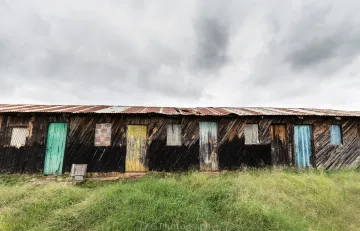
Enhancing Evidence for Humanitarian Action
The Enhancing Evidence for Humanitarian Action activity aims to provide USAID’s BHA, its partners, and the broader humanitarian community with indicators and methods for measuring the impact of investments in early warning, Disaster Risk Reduction, and climate adaptation programming. The project draws on UA’s strength in interdisciplinary science to research indicators and methods for measuring behavior and landscape change through recurrent monitoring, remote sensing and earth observation, and qualitative inquiry.
The Principal Investigator is Zack Guido, the Director of the Arizona Institute for Resilient Environments and Societies (AIRES), International Programs and Assistant Research Professor, School of Natural Resources and Environment. Team members include Alex Braithwaite from the School of Government and Public Policy; Jeff Michler and Anna Josephson from the Department of Agricultural and Resource Economics; Beth Tellman from the School of Geography, Development, and Environment; Corrie Hannah from AIRES; and Tim Finan from the School of Anthropology. The project team includes the Tucson-based consulting firm Technical Assistance for NGOs (TANGO).
Location
Donor
Related People
Related Research
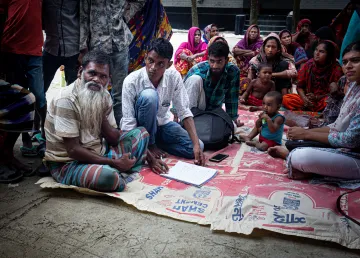
Building Equitable and Resilient Urban Food Systems in Southern Africa
Urban food systems (UFS) in southern Africa comprise a hybrid mix of food sourcing opportunities from formal and informal food retailers, including open-air markets, street vendors, small shops, and supermarkets, as well as household-level strategies, such as urban agriculture and food sharing. Despite this diversity, many low- to middle-income urban households experience high rates of food insecurity due to a lack of sufficient and stable income to purchase adequate amounts of safe and nutritious food to meet their needs. Urban household incomes have become even more variable and unstable because of economic pressures associated with the COVID-19 pandemic, food price shocks linked to disrupted food supply chains, and the impacts of climate variability on regional food production. A UAz and southern Africa scholar-practitioner working group will develop a peer-reviewed synthesis paper in a special issue journal, an op-ed, and policy brief to assess the resilience and equitability of UFS in Zambia, South Africa, and Zimbabwe. Partners include members from the University of Cape Town, University of Zimbabwe, Indiana University, and Zambia Ministry of Agriculture. The working group will attend the Southern African Resilience Academy, which is hosted by the Centre of Sustainability Transitions at Stellenbosch University. The working group is funded by the Global Resilience Partnership.
Location
Donor
Related Research
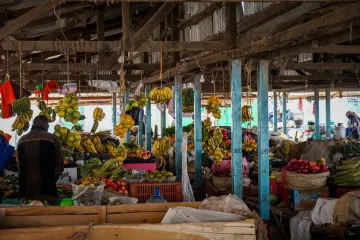
Gender, Power and Resilience in Bangladesh
The objectives of this research activity are to: (1) analyze resilience outcomes of the totality of SHOUHARDO’s interventions focused on women’s empowerment and social inclusion, (2) assess the dynamics of Sequencing, Layering and Integration (SLI) of SHOUHARDO interventions, (3) identify the factors that reduce the sustainability of SHOUHARDO interventions in women’s empowerment and social inclusion, and (4) assess the influence of SHOUHARDO programming on structural power imbalances. The University of Arizona will use mixed methods and community ethnography in eight communities in each of the Char and Haor regions.
Location
Donor
Related People
Related Research
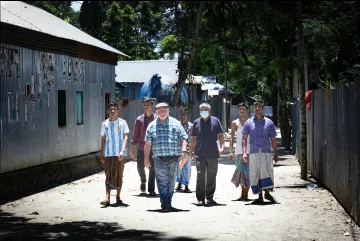
Tim Finan in Bangladesh on the Gender, Power and Resilience in Bangladesh project
Zack Guido
Famine Early Warning System Network
USAID has awarded an IDIQ contract to Tetra Tech ARD (ARD, Inc.); DAI Global, LLC; Abt Associates, Inc.; and Chemonics International, Inc., to provide services for the Famine Early Warning Systems Network (FEWS NET) 7. The goal of FEWS NET 7 is to sustainably prevent food insecurity and famine. FEWS NET 7 is structured around four main pillars of activities: Emergency Food Insecurity Analysis, Management of a FEWS NET Learning and Data Hub (restricted to Small Business set-aside), Analysis of the Dynamics of Food, Nutrition and Livelihood Security, and Technology and Innovation. The University of Arizona is a resource partner for DAI and is able to compete for task orders issued under this IDIQ with DAI.
Location
Donor
Related Research
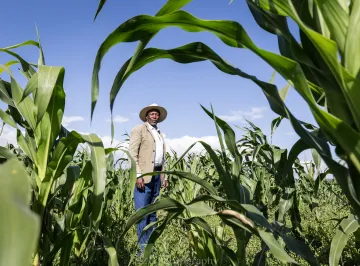
Zack Guido
Pagination
- Previous page
- Page 2


